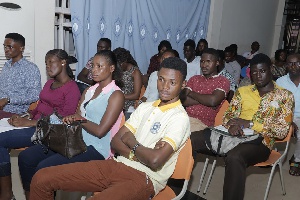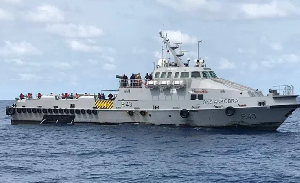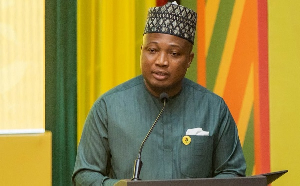Introduction
The definition of the word “Youth” varies from country to country. Generally, the period between childhood and adulthood is called “Youth”. During this period a person prepares himself/herself to be an active and responsible member of the society. It’s also a period of transformation from family dependent childhood to independent adulthood and integration in the society as a responsible citizen.
Mathematically, Youth is defined by various quarterses as persons within the ages of 15 and 35 years old. The National Youth Policy of Ghana recognizes this definition as such. The Youth are categorized as: Rural and Urban, Male and Female, Adolescence and Adults, Physically challenged and Able-bodied, Educated and Uneducated, In-school and Out-of-school, organized and Unorganized, Skilled and Unskilled. The above breakdown of youth has varied characteristics, needs and aspirations as well as diverse opportunities and constraints across the country.
Facts According to the 2010 Ghana Housing and Population Census, the population of Ghana was estimated at 24,658,823 million with an annual intercestel growth rate of 2.5%. The Youth in Ghana constitute about 37% as an heterogeneous segment of Ghana’s population.
It has now been estimated that, about 65% African population is below the age of 35 years and over 35% are between the ages of 15 and 35 years making Africa the most youthful continent and Ghana, a country with a youthful country. Further projections reveal that, by 2020, out of every 4 people, 3 will be on an average age of 20 years old.
In furtherance to this analyses, it’s estimated that about 10 million youth join the league the unemployed to seek for a job every year within the African continent. By 2020, Africa will be full of youth who can help contribute to the socio-economic, cultural and political thinking of the continent.
It ought to be note that, with an asset of a youthful population, this is the time for African countries to invest hugely in young people by building their capacities and addressing their socio-economic demands to ensure that this important asset does not turn to be a total waste and threat to the continent.
Ghana’s Youth Policy was out-doored by Hon. Akua Sena Dansua, a former Minister for Youth and Sports on the 10th August, 2010 that was two days to the International Youth Day, 2010 which was under the theme, “CHANGE OUR WORLD”. The rationale behind the out-dooring of this Youth Policy was in connection to the signing and ratification of the African Youth Charter which was launched and ratified by 16 African countries excluding Ghana at that time in July, 2006, at the 7th ordinary AU summit held in Banjul, The Gambia.
The Charter came into force on the 8th August 2009, following the receipt of the 15th ratification on the 8th July, 2009. To date, 35 out of 54 countries have ratified the Charter with Rwanda being the first and Kenya being the most recent. Ghana being touted as the beacon of hope in Africa only ratified the Charter on the 28th of October, 2013 three years after the launch of the Youth Policy. Also, 41 countries had also signed onto the Charter. What remains is to put relevant mechanisms and structures to ensure that the Charter is well implemented.
Implementing the Youth Policy and Charter
At a meeting of the 11 pilot countries to advance the popularization, ratification and implementation of the Charter held in May, 2009, African Union member states outlined certain conditions under which the Charter can be implemented.
These include that all member states should; ratify the Charter by the end of the year 2010; have in place National Youth Policies and Action Plans that take into account and support the implementation of the Charter (this also applies to countries whose National Youth Policies are not in compliance with the Youth Charter); have mechanisms for reporting on progress made with the implementation of the youth policies and programmes; and strengthen their respective representative bodies for youth.
Thus, the Charter provides the basis for greater coordination by the sectorial ministries responsible for youth, while providing the youth with tools for advocacy and demand for greater accountability of government work.
What must be done
Education must be accessible to our young people who are willing to be formally educated. And efforts to provide loans, grants and the like must be expended without political colorization. In order to bring the provisions of the Youth Policy to fruition, youth groups must start to advocacy campaigns on specific issues in the policy.
They must also start to organize around the political processes to get themselves and their peers into public policy making spaces. The role of media in development cannot be underestimated. It is our hope that, various media houses and outlets will identify vocal and outspoken youth and avail such opportunities to them to air their views and positions on issues concerning the youth.
However, it is important for youth to also demonstrate (provide models) how implementation it is possible through the work of their organizations by undertaking educational initiatives, participating in community volunteer initiatives like teaching, climate change initiatives, getting involved in volunteer health care and other community driven activities.
Opinions of Tuesday, 5 September 2017
Columnist: Jutta Tibe Kombian















